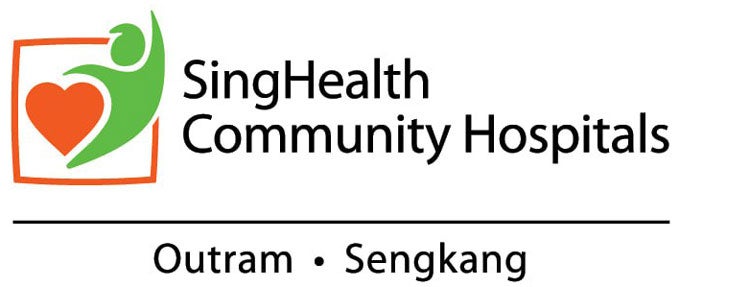SingHealth Community Hospitals will NEVER ask you to transfer money over a call. If in doubt, call the 24/7 ScamShield helpline at 1799, or visit the ScamShield website at www.scamshield.gov.sg.
WSQ Course - Implementing Interventions in Health and Social Care
Social Prescribing for Healthier SG
TGS-2022012698

Learning Objectives
This course builds on Social Prescribing, Social Determinants of Health, Patient Centred Care and Biopsychosocial Model as cornerstones to improve the integration of health and social care. Participants will acquire skills to use tools to assess social determinants of health, find assets in the community to support patients and co-develop personalised care plan.
In addition, to enable client empowerment and activation of other stakeholders, interprofessional collaboration, interpersonal and interdisciplinary communication skills, and motivational interviewing technique will also be covered in this course. Participants will also learn to interpret group dynamics and understand its impact on client’s needs and conditions on participation of care activities. Thereafter to apply the knowledge to adjust prescribed activities to meet clients’ needs.
About Social Prescribing
Research has shown that 80% of healthcare outcomes is influenced by one’s social determinant of health. Only 20% of health outcome is a result of direct "medical prescription". It is recognised that for care plans to be effective, it should include a social prescription to improve the social determinants of health. Moreover, the ability to work effectively with other care professionals is important. Effective collaborations with stakeholders in the health and social care sector is critical in a good care plan.
Social prescribing is an important new intervention to improve the social determinants of health, advocated by World Health Organisation (WHO) and health systems around the world, including Singapore SingHealth Community Hospitals (SCH). SCH works closely with WHO Western Pacific Regional Office to provide technical advice in the development of its toolkit for social prescribing and is also a partner in the Global Alliance for Social Prescribing.
SCH's Mission in Social Prescribing
SCH participated in the development of a Massive Open Online Course (MOOC) on Social Prescribing that is available through the OpenWHO1 platform. SCH has substantial experience in the practice of social prescribing being the first organisation in Singapore to introduce Social Prescribing into its care model. SCH is also recognised internationally as an innovator in the field of Social Prescribing. In 2021, SCH won Best International Social Prescribing Scheme Award at Social Prescribing Network Awards.
WHO’s interactive, web-based, knowledge-transfer platform offering online courses to improve the response to health emergencies.
Learning Objectives
At the end of the course, participants will acquire the following competencies to work in an emerging area of integrating health and social care. Participants will be able to:
- Interpret clients’ complex requirements, physical and functional conditions, and social interaction needs to meet the variation in client needs and requirements.
- Develop individual care plans with appropriate range of activities and suitable resources.
- Conduct therapies and interventions and report them according to organisational Standard Operating Procedures (SOPs).
- Identify the appropriate instructional methods for providing guidance to care staff.
- Monitor implementation of care plans from various stakeholders to ensure proper execution.
- Assess the group dynamics and impact of clients’ needs and conditions on participation of the prescribed activities to modify activities to meet client needs.
Pre-requisites
The minimum requirements expected are as follow:
- At least O level qualifications or demonstrate English Literacy skills at a proficiency level not lower than the ES WSQ Workplace Literacy and Numeracy (WPLN) Level 5; and
- At least O level qualifications or demonstrate Numeracy skills at a proficiency level not lower than the ES WSQ WPLN Level 5
- At least one year of working experience or is currently employed by health and social care service providers.
- Learners should be familiar with local culture.
NOTE: As the nature of care coordination requires work and life experiences. Currency of employment in the health and social care sector is an advantage as the competency can be transferred and applied at the workplace. Therefore, special consideration is given in terms of work experience.
Target Audience
Individuals helping clients in intermediate and long-term care (ILTC) sector though job roles which include but not limited to:
- Care Coordinator
- Wellbeing Coordinator
- Health and Social Care Coordinator
- Care Coordinator Associate
- Programme Coordinator (Volunteer/ Befriender Management)
- Programme Associate (Senior Activity Centre)
- Activities Coordinator
- Care Programme Coordinator
- Care Associate
Keep Healthy With
@2025 SingHealth Group. All Rights Reserved.
















